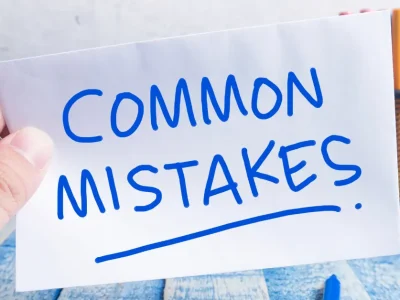When should I start studying for the bar exam? How long does it take to study for the bar? For prospective bar applicants, these are million-dollar questions. This article will attempt to answer these frequently asked questions on how long it takes to study for the bar exam, arguably the most challenging exam you will ever take.
You should know that there’s no one-size-fits-all answer that works for every bar exam candidate. Depending on how well you performed in your 1L, you might need to study more or less than another bar applicant. Here are some general timeline recommendations to adequately study for the bar exam.
When should I start studying for the bar exam?
The answer is—wait for it… “It depends!” You probably saw that coming as a legal mind, but it really does depend on your life circumstances. Let’s explore a couple of scenarios that could affect how long you study for the bar exam.
Scenario 1: Studying full-time
If you have no other commitments (which is very likely unrealistic for a law graduate), you could start studying 2-3 months before the exam. Under this timeline, spend the first two months learning and relearning the subjects tested on the various bar exam components while completing practice questions. Then focus your efforts in the last two weeks to one month reviewing the concepts via your notes and flashcards while taking timed self-assessments that simulate the actual test day experience.
Scenario 2: Studying with a full-time job
Studying while balancing work and family is the more likely scenario for the average law graduate. Realistically, you could probably manage to invest 20-25 hours per week studying, and we recommend starting even earlier than 2-3 months before your bar exam date. 4-5 months is a good ballpark of how early you should start studying for the bar exam with a full-time job and other responsibilities such as family obligations.
How many hours should I spend studying for the bar exam?
Typically, about 400 hours of study time should suffice. Spend half of that time learning the law and memorizing your outlines, and the other half practicing bar exam questions. Naturally, as mentioned above, if you excelled in your first year of law school, you could get away with studying for fewer hours. Conversely, if your 1L experience proved quite the challenge, consider scheduling more hours of study time in your study plan.
Moreover, if you are many years removed from law school, you should probably maximize your time studying for the bar exam since you will need refreshers. You know your story better than anyone, so use your best judgment to determine how much time you should spend studying for the bar exam.
What is the minimum amount of time I should spend studying?
Under Scenario 1 above, spend about 40-50 hours per week studying since preparing for the bar exam would essentially be your full-time job. Discipline yourself to take your bar prep as seriously as you would your day job, avoid distractions, and strive to be productive. A good rule of thumb when preparing for high-stakes exams like the bar is to create a study schedule you can stick to. Stay organized, and time your study sessions daily, taking necessary breaks to rest and refresh.
Under Scenario 2, the same advice regarding discipline applies, but you might have to go the extra mile, including studying in the evenings even when you’re tired after work. One way to maximize the limited time you have to dedicate to bar prep is to study as much as you can on weekends (assuming you work Mon-Fri). Studying doesn’t have to take up all your time on weekends since you’ll have other responsibilities such as family time but commit to spending at least 5 hours per day for focused study.
What is the bar exam format, and how long does it last?
The Uniform Bar Exam (UBE), commonly referred to as the bar exam, is a 2-Day, 400-point exam featuring three parts:
- The Multistate Bar Exam® (MBE®). The MBE features 200 multiple-choice questions across seven topics. The MBE is offered in two sessions: one in the morning and one in the afternoon. Each session features 100 questions, and examinees have 3 hours to complete them. Altogether, the MBE lasts 6 hours. Check out our in-depth article, All About the Multistate Bar Exam (MBE®), for more on the MBE.
- The Multistate Essay Exam® (MEE®). The MEE features six 30-minute essays, which bar applicants must answer in one sitting. Examinees will have 3 hours to answer all six essay questions.
- The Multistate Performance Test® (MPT®). The MPT format features two 90-minute assignments, both of which bar applicants must complete in 3 hours.
For details about the UBE, check out our in-depth article, About the UBE.
What subjects are tested on the bar exam?
The MBE tests on the following topics:
- Civil Procedure
- Constitutional Law
- Contracts
- Criminal Law and Procedure
- Evidence
- Real Property
- Torts
In addition to the seven MBE subjects above, the MEE tests the following:
- Business Associations (Agency and Partnership; Corporations)
- Conflict of Laws
- Family Law
- Trusts and Estates (Decedents’ Estates; Trusts and Future Interests)
- UCC Article 9 (Secured Transactions)
The MPT tests the following lawyering skills:
- Problem-solving
- Legal analysis and reasoning
- Factual analysis
- Communication
- Organization and management of a legal task
- Recognizing and resolving ethical dilemmas
What is the best way to pass the bar exam?
In two words: proper preparation. If you create a robust study plan, follow a study schedule you can stick to, and prepare with the right bar exam review, you can pass the bar exam on your first try! Also, since it accounts for a weighting of 50% or more in most jurisdictions, make sure to focus on acing the MBE.
Finally, while this article advises on when you should start and how long you should study for the bar exam, the quality of your study is more important than the length of time you spend studying. So focus on how to study smart for the bar exam and MBE.
We wish you the best of luck studying for the bar exam!
Prepare with the UWorld MBE QBank and Themis Bar Review to give yourself the best chance of passing the bar exam.




